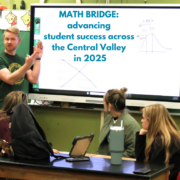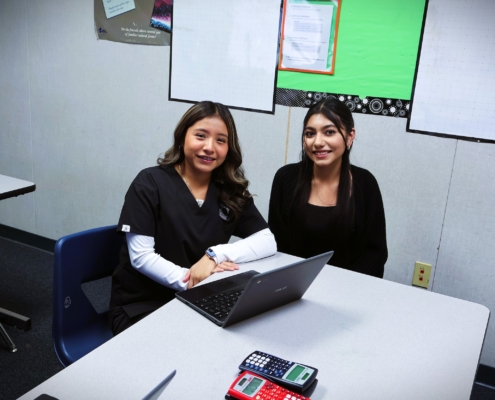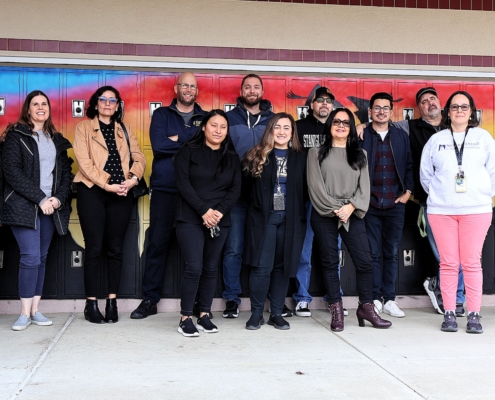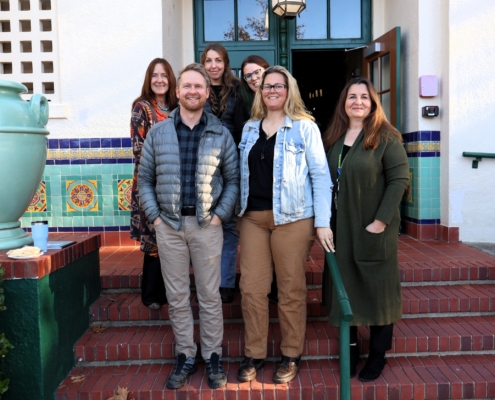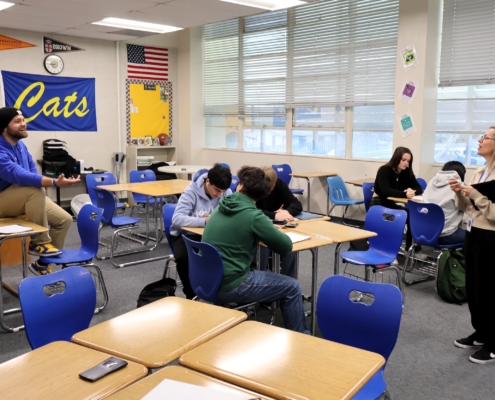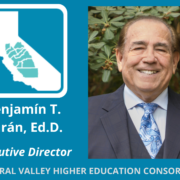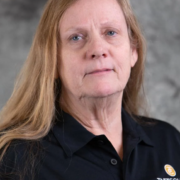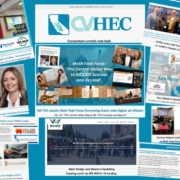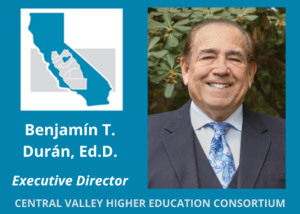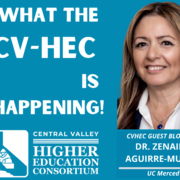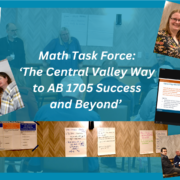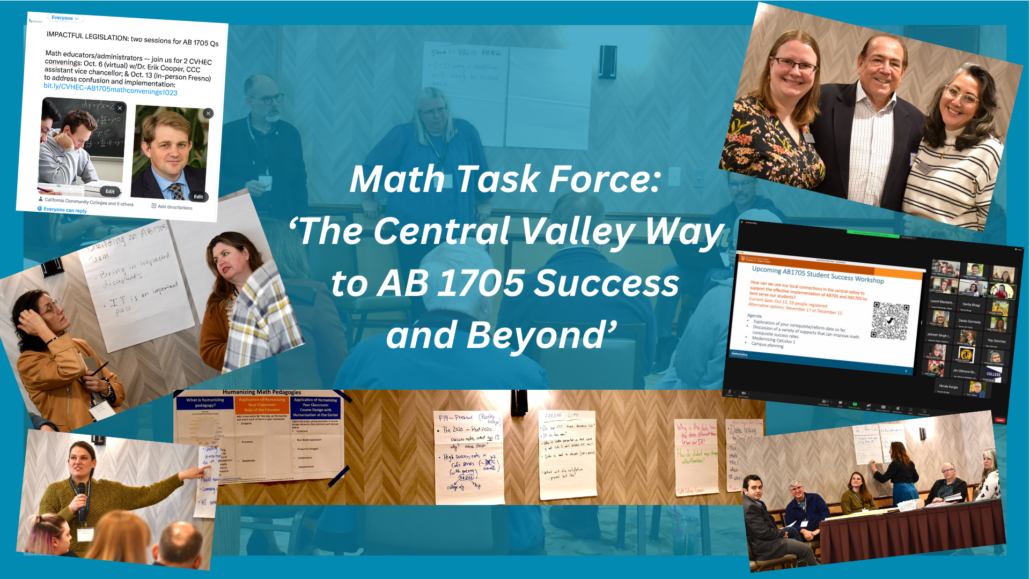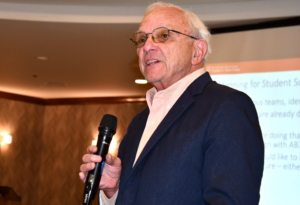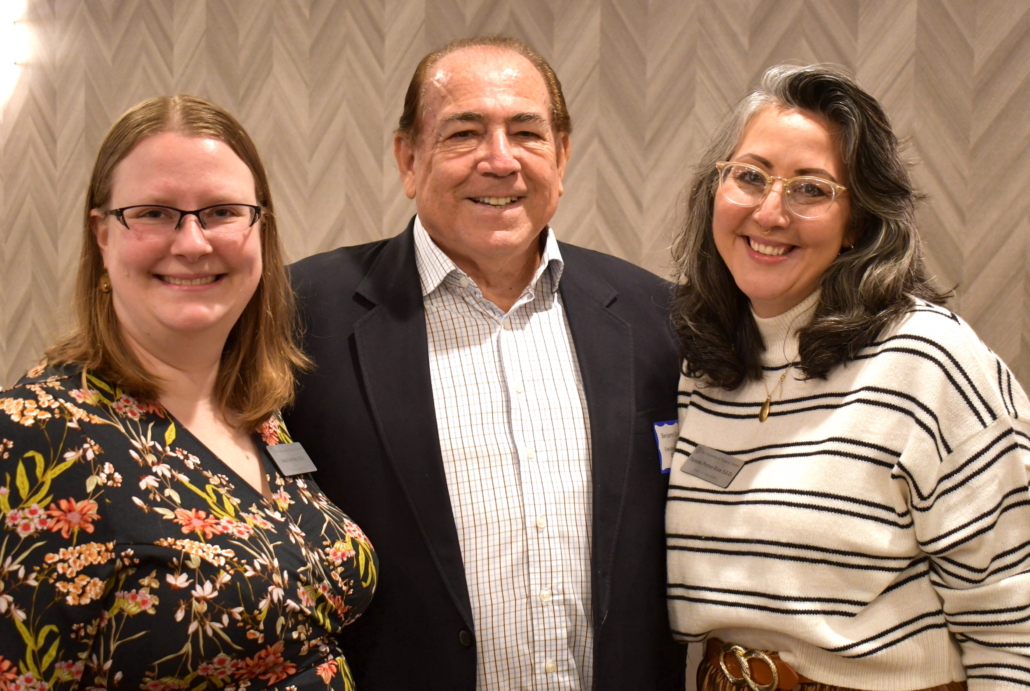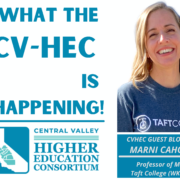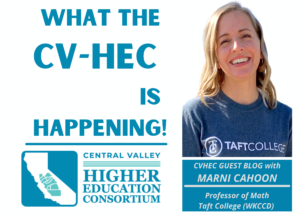MATH BRIDGE UPDATE: providing tools for postsecondary journeys
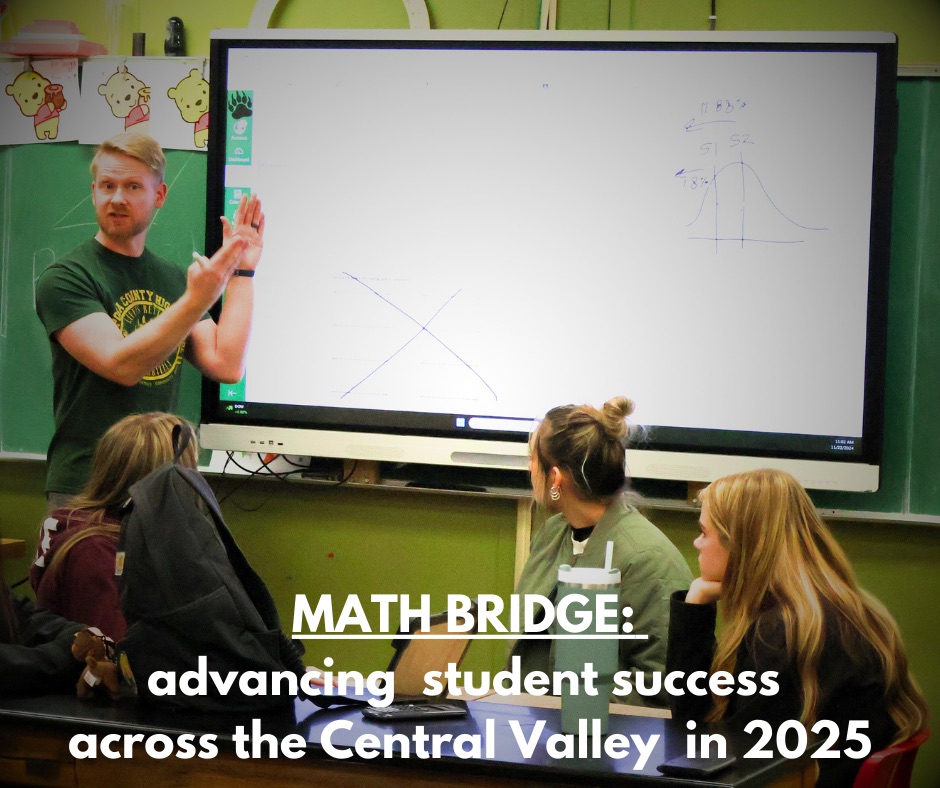 Nathan Savig teaching a Math Bridge prep course to students at Mariposa High School in the fall 2024 semester. These students are part of the 332 program enrollees who will take their first Math Bridge college class this spring at their respective high schools.
Nathan Savig teaching a Math Bridge prep course to students at Mariposa High School in the fall 2024 semester. These students are part of the 332 program enrollees who will take their first Math Bridge college class this spring at their respective high schools.
EDITOR’S NOTE: Since the Central Valley Math Bridge program was funded in late 2022 in partnership with the Central Valley Higher Education Consortium, the Rand Corporation and several community college members of the consortium with funding from the California K-16 Collaborative (Central – Fresno, Madera, Kings Counties; and We Will! – North Valley), its small but energetic College Bridge team has made headway into 18 high schools in the consortium’s 10-county region. The first Math Bridge cohort at 13 of those schools began in the fall with a prep course and now the 332 high school students enrolled in the program at those schools will be taking their first college course this spring (see list below). The other five schools will start in fall 2025. This update submitted by Audra Burwell, College Bridge communication coordinator, presents the program’s 2024 progress as it moves into 2025 with its first cohorts.
‘… facilitating meaningful discussions about
how math applies to the real world …’
As we step into spring 2025, College Bridge is making significant strides in expanding its Math Bridge project to reach more high school students across the Central Valley.
This innovative initiative aims to ease the transition from high school to college-level mathematics by offering a rigorous college-level math curriculum alongside the support of high school and college instructors. This collaboration is laying the foundation for academic success and providing students with the tools they need to succeed in their postsecondary journeys.
Across classrooms, high school math instructors are teaming up with college faculty who bring their credentials and college-level expertise to the learning environment. Together, they combine their knowledge and experience, brainstorming examples, solving problems, and facilitating meaningful discussions about how math applies to the real world.
In many classrooms, high school instructors are also dual-certified, holding credentials that allow them to teach at the college level. This professional development is often made possible through the Central Valley Higher Education Consortium’s (CVHEC) Master’s Upskilling Program, which equips educators with the tools and expertise to teach college-level material to high school students.
In 2024, thanks to the dedication of educators, counselors, and administrators, Math Bridge expanded its reach to serve 13 high schools across the Central Valley (see list below). But College Bridge isn’t stopping there—2025 marks a year of even greater growth. Five new schools will join the Math Bridge initiative, helping to expand the program’s impact across the region. Le Grand High School, El Capitan High School, Merced High School, Dos Palos High School, and Gustine High School will be the newest members of the Math Bridge network. These new partners will help ensure that even more students have access to the support they need to succeed in math, breaking down barriers to higher education.
This expansion is made possible thanks to the WE Will! K-16 Educational Collaborative grant, which helps provide additional resources for high school students preparing to enter college. The partnership between K-12 and higher education institutions is creating a more seamless transition for students into postsecondary education, and the inclusion of these new schools is expected to further enhance the success of the program.
Beyond Math Bridge, College Bridge remains committed to supporting students’ overall educational pathways. One of the key components of this broader support is the concurrently with the Math Bridge program.
CT Bridge is designed to provide students with the tools and information they need to succeed in their transition to college such as filling out applications; making their fall college schedule; accessing their college portal; understanding FAFSA and financial aid options; gaining career advice; and how to access college support services—all in just 10 hours of course material per year. By offering students insights into both academic and career pathways, CT Bridge is helping them prepare for success not just in their math courses, but in their future college and career endeavors.
As College Bridge continues to evolve and expand, the organization remains focused on ensuring that students have access to the resources and guidance they need to thrive. In the coming months, College Bridge will be hosting several Student Info Sessions to encourage high school students to apply for the Math Bridge program for the 2025/2026 school year. These sessions will provide students with a chance to learn more about the opportunities offered by Math Bridge and CT Bridge, as well as how they can benefit from these programs.
Additionally, College Bridge will continue hosting Planning and Strategy Sessions for Central Valley educators and counselors
Stay tuned for more updates as we continue to move forward with these vital initiatives!
Math Bridge Cohorts 2024-2025
(Breakdown of 332 students currently enrolled in the Central Valley Math Bridge Program at 13 high schools,
listed by community college partners that are CVHEC members):
DELTA COLLEGE
Stagg: 24
Weber: 26
MERCED COLLEGE
Buhach Colony: 18
Atwater: 26
Golden Valley: 36
Livingston: 33
Mariposa: 34
REEDLEY COLLEGE
Dinuba (2 sections): 34
Orosi: 23
Sanger: 30
Sanger West: 11
TAFT COLLEGE
Taft: 12
Riverdale: 25
(Five additional high schools will onboard in the fall semester: Le Grand, El Capitan, Merced, Dos Palos and Gustine).

